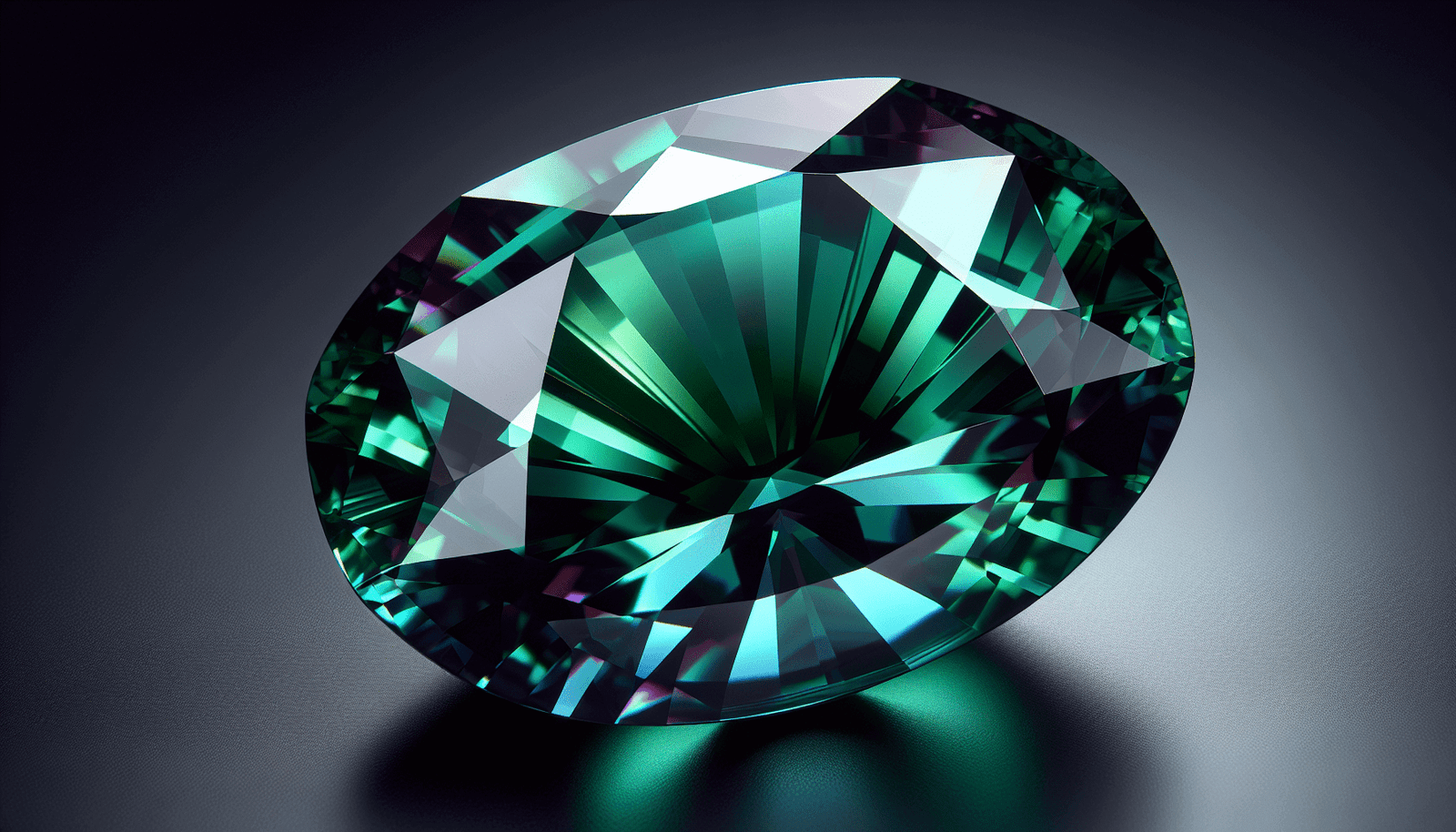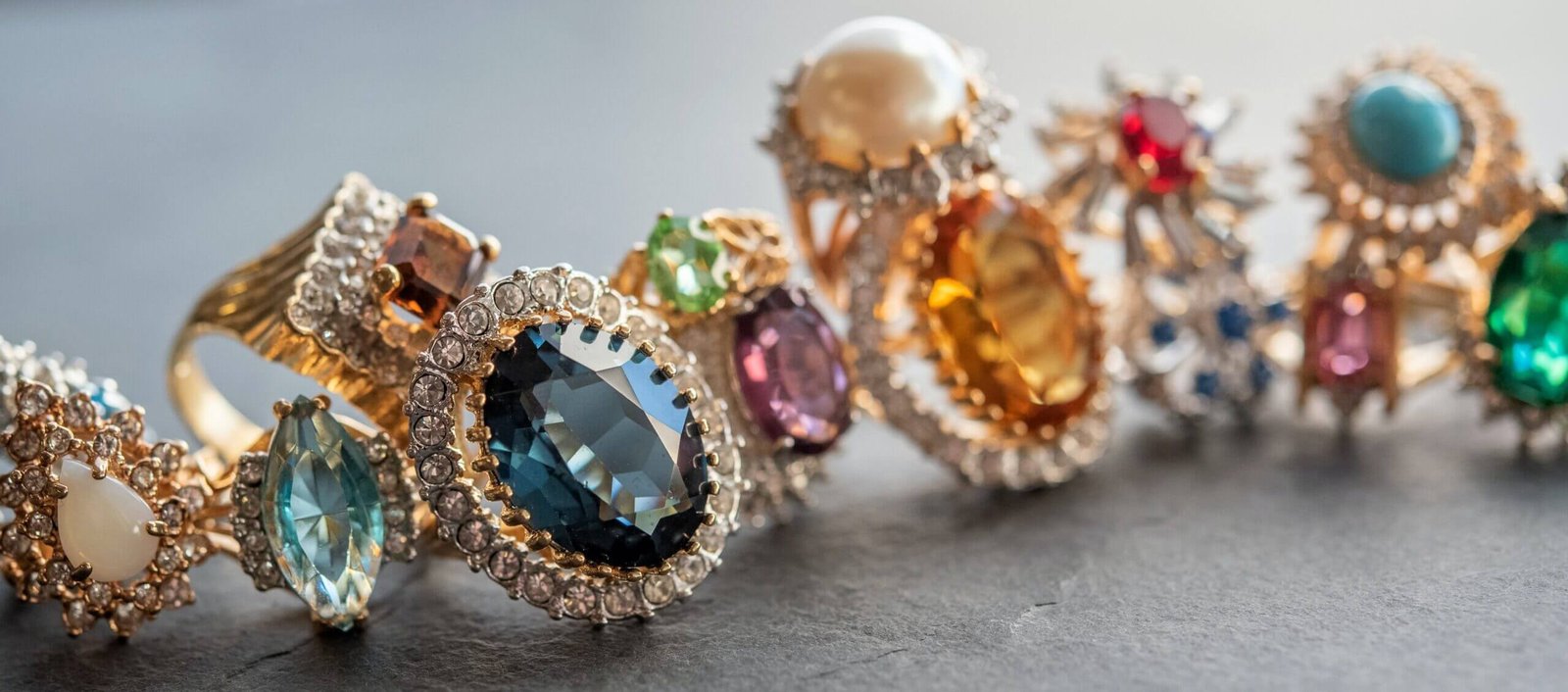Imagine discovering a gem that seems to possess magical qualities—the alexandrite. This fascinating gemstone, discovered in the 1830s in Russia, has the extraordinary ability to change color depending on the light, making it both mysterious and enchanting. By daylight, you’ll see a brilliant green or bluish-green, but under incandescent light, it transforms to a purplish-red or raspberry hue. Renowned for its rarity and unique optical qualities, alexandrite has captured the fascination of gem enthusiasts around the world. Dive into this article to explore the captivating history, science, and allure behind one of nature’s most mesmerizing treasures. Have you ever wondered what makes alexandrite so special? You’re not alone! Alexandrite, a relatively rare and stunning gemstone, has fascinated gem enthusiasts and jewelry lovers alike for its incredible color-changing ability and rich history. Let’s dive into what makes this stone so unique and why it’s considered one of the most extraordinary gemstones you can find.

The Origins and Discovery of Alexandrite
To appreciate alexandrite’s allure, it’s vital to go back to its origins. Alexandrite was first discovered in Russia’s Ural Mountains in the 1830s. It’s named after the young Tsar Alexander II of Russia. Imagine the 19th-century gemologists’ amazement when they stumbled upon a stone that appeared green in daylight and turned a vivid red under incandescent light. This unique property set the stage for its global fascination.
How Alexandrite Was Named
The gemstone was aptly named to honor the future Tsar Alexander II. Given the timing of its discovery around his coming of age, the Russian connection adds a historical and cultural layer of intrigue to this already captivating stone.
The Unique Color-Change Phenomenon
One thing that makes alexandrite stand out is its dramatic color change. Alexandrite is part of the chrysoberyl family, but it’s this specific color-changing variety that has captured people’s attention.
Science Behind the Color Change
Why does alexandrite change color? The magic lies in the complex way the crystal absorbs and reflects light. Alexandrite is trichroic, meaning it can display three colors when viewed from different angles. The chrome (Cr3+) ion in the gemstone causes the light absorption that leads to the visible color change.
Here’s a simple breakdown:
| Light Source | Color |
|---|---|
| Daylight (sunlight) | Green to bluish-green |
| Incandescent light (lamp light) | Red to purplish-red |
Essentially, alexandrite changes color because different light sources contain varying wavelengths, triggering different colors in the stone. Isn’t that fascinating?

Alexandrite’s Place in Gemology
Gemology, the scientific study of gemstones, places alexandrite in a league of its own, mainly due to its rarity and unique features.
Physical Properties
Here’s a quick look at alexandrite’s standard attributes:
| Property | Alexandrite |
|---|---|
| Hardness | 8.5 on the Mohs scale |
| Specific Gravity | 3.73 – 3.75 |
| Refractive Index | 1.746 – 1.755 |
| Crystalline Structure | Orthorhombic |
Apart from its mesmerizing color change, alexandrite’s robust nature makes it suitable for various jewelry pieces, from rings to necklaces.
Sourcing and Rarity
Initially found in the Ural Mountains, alexandrite deposits have since been discovered in places like Brazil, Sri Lanka, Tanzania, and Zimbabwe. Still, high-quality alexandrite remains exceptionally rare, especially those with a strong, distinct color change.
Alexandrite in Jewelry
Settings and Designs
Given its rich colors and sparkle, alexandrite is A gem cutter’s dream. The stone is versatile enough for various jewelry styles, from classic solitaires to intricate, multi-stone designs. You can find alexandrite set in anything from sleek, modern rings to vintage-style brooches, ensuring there’s an option for every taste and occasion.
Caring for Alexandrite Jewelry
While alexandrite is relatively hard and durable, it’s crucial to care for it properly. Clean your alexandrite jewelry with mild soap and a soft brush, and always avoid exposing it to harsh chemicals. Storing it separately from other gems will help prevent scratches.

Alexandrite’s Symbolism and Cultural Significance
What elevates alexandrite beyond its physical properties is its rich symbolism. Often referred to as the “emerald by day, ruby by night,” alexandrite is linked with various positive traits and beliefs.
June Birthstone
Alexandrite is one of the birthstones for June, sharing the honor with pearls and moonstone. Because of its rarity, owning alexandrite is considered a significant gesture of love and wealth.
Spiritual and Healing Properties
Many believe that alexandrite has metaphysical properties, including:
- Balance: Its color-changing quality symbolizes balance and adaptability.
- Creativity: It’s thought to inspire imagination and creativity.
- Healing: Some say alexandrite can aid emotional healing and reduce stress.
Historical and Modern Usage
In the 19th century, Russian royalty wore alexandrite for its perceived good fortune. Today, it remains a popular choice among collectors and those who appreciate its uniqueness.
Alexandrite in Popular Culture
Beyond being a gemstone, alexandrite has made its way into popular culture and various forms of media.
Movies and Television
From high-stakes heist movies to fantasy dramas, alexandrite often symbolizes rarity, value, and sometimes even magic. Its unmistakable color shift makes it a perfect plot device in stories requiring a touch of mystique.
Literature
Writers often use alexandrite to symbolize duality or transformation, fitting given the stone’s natural properties. It frequently appears in stories where characters undergo significant personal changes.
Fashion
In the fashion world, alexandrite remains a symbol of opulence and elegance. High-fashion designers occasionally incorporate alexandrite in their collections, using its unique properties to create stunning, one-of-a-kind pieces.
Investing in Alexandrite
Given its rarity and unique characteristics, alexandrite is a worthwhile investment for gemstone enthusiasts and collectors.
Valuation Criteria
Here are the main factors affecting alexandrite’s value:
| Factor | Description |
|---|---|
| Color Change | The more distinct the color change, the higher the value. |
| Clarity | Clearer stones are more valuable. |
| Carat Weight | Larger alexandrites are rarer and thus more expensive. |
| Origin | Stones from original Russian mines are particularly prized. |
Buying Tips
When purchasing alexandrite, always request a certified gemological report. This documentation ensures you’re buying an authentic stone. Given its rarity, working with reputable jewelers is essential for making a wise investment.
Future Trends
As awareness grows about alexandrite’s unique properties and historical significance, it’s likely to see increased demand. Being one of the rarer gemstones, it’s anticipated to appreciate in value over time.
Conclusion
So, what makes alexandrite so special? Its mesmerizing color change, rich history, rarity, and cultural significance come together to create a gemstone that’s truly one of a kind. Whether you’re a collector, a jewelry aficionado, or someone looking for a meaningful gift, alexandrite has something unique to offer. Its combination of beauty, history, and symbolism is hard to match, making it a gem well worth your admiration and investment.
If you’re curious about gemstones that captivate both the eye and the heart, exploring alexandrite may just be the fascinating journey you’ve been looking for. Whether catching the “emerald by day” or the “ruby by night,” you’ll find that alexandrite is indeed a marvel of the natural world.



